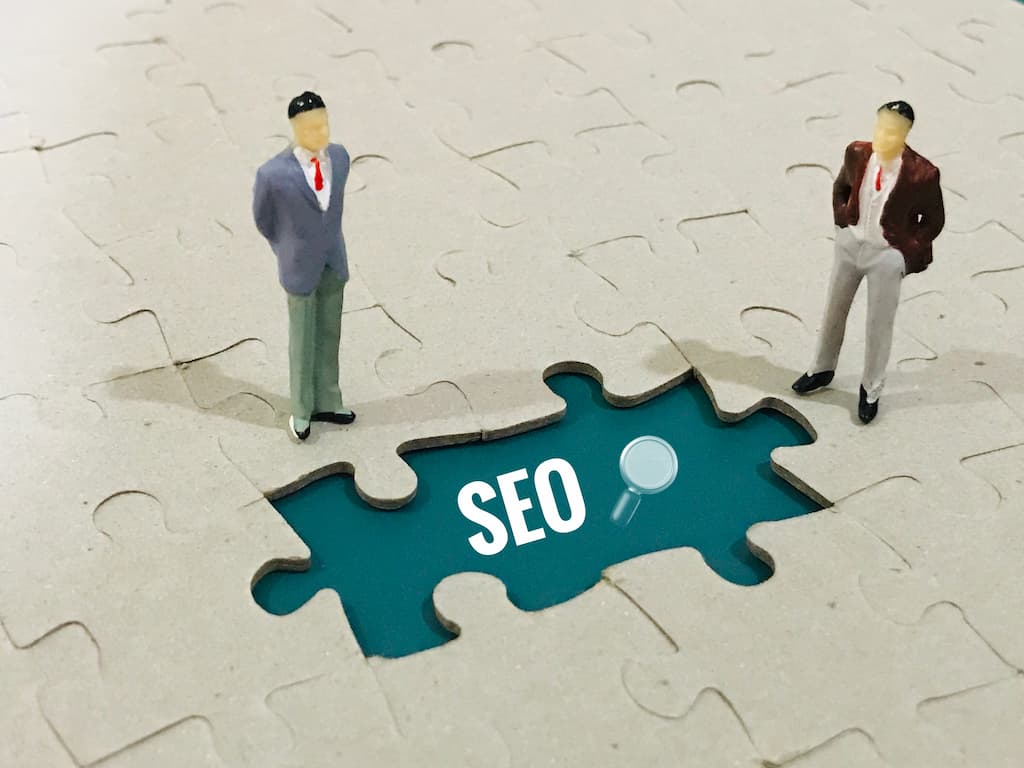
Search Engine Optimization (SEO) Meets Psychology
Feb 21, 2023 in SEO by Rosi Schmidt
Nowadays, you can no longer imagine a day without search engines. They are a part of our everyday life, and we constantly look on the web browser, YouTube, social media, or other platforms for information that interests us.
Some studies show that up to 90% of users use the search engine at least once a week. For social media, the number is at about 60%, but the rate has surely gotten higher. Online shopping has also increased due to the pandemic or simply because of digitalization. This trend shows that it is essential to establish a robust presence online and become a dominant source of information and shopping.
As a marketing tool, one of the goals of SEO is to get businesses on the first page of search engine results; getting them in the top 5 of the first result page would be even better. However, why is it so important?
One study found that only 0.78% of the users look for results on the second search engine results page (SERP) (Garcia et al., 2022). It was also found top 3 Google search results get %54.4 of all clicks. Therefore, one of the goals of digital marketing companies is to land on the first page of results, as it makes their own company more prominent and significantly increases profit and traffic.
SEO takes all of these psychological views and insights to heart. It ensures that companies become the top riders in their industry and puts them in the user’s shoes to work out what is important to them.
What Does SEO Have to Do with Psychology?
Psychology can be understood as a science examining the conscious and unconscious psychological processes. Additionally, they also deal with human experience and behavior.
As the definition suggests, psychology wants to understand the processes in the human way of thinking and try to predict them. For that, psychology uses probabilities and frequencies for their benefit. They take a representative sample of people and determine the probabilities of people in general or a particular group of people doing something (like clicking on the second results page).
SEO operates in a similar way. We put ourselves into the user’s perspective and analyze what types of texts and information interest a particular group.
For instance, if you know that you want to appeal to a group that is still at the beginning of a purchase process, then you are more likely to write an informational text where only information about the interested products is listed (e.g., “What is vinyl?”, “Which material should I rather use for the floor?”, and so on). It is done to ensure the user progresses in the purchase process and buys a product. Such texts make a huge difference between an acknowledgment or a click on the website for a potential customer.

Internet users give you a lot of information with the types of search queries and preferred links they select. For example, the Google algorithm suggests what else to search for with a particular term. The algorithm analyses the frequency of specific search queries and then suggests them to other users while entering the words. SEO uses this feature to find popular subtopics for a central topic. The same principle is used on the search engine results page where the “People Also Ask” box is used.
Not only are SEO specialists trying to find out the user’s intent, but Google's algorithm is trying the same. By analyzing the personal search searches of users, Google tries to understand what this group of people with the same queries tries to find. By looking at studies, we can see that Google's algorithm does a good job. About 73% said they find what they are looking for most of the time; 22.4% said they always find what they are looking for (Schultheiß & Lewandowski, 2021).
If you continue to look at the SERP, you can already determine from the first organically generated links which type of information and text formats users like to see and read. SEO experts use simple information that initially appears unimportant to deduce user behavior and then implement it in their text. They also modify data and give users more information they need but cannot find on other sites.
Psychology takes a similar procedure; for example, if you want to record how high a personality trait is, a test is developed to measure this personality trait with the information that is available shout this personality trait. In SEO, the information is filtered out of the search engine results pages and assigned to the profiles of different user groups. This information is then used to write texts which appeal to the different groups.
It is also known that if a user is already further in the buying process, they are more likely to favor a particular company or product because it meets their needs. Their search intent becomes more specific, which results in specific keywords being typed into the search engine. Such users gradually become more loyal over time (Garcia et al., 2022).
For this example, an SEO specialist should place shorter and more specific texts for more specific products or areas of the company since the user already knows a lot of information and does not necessarily need it. You do it instead to continue to convince the user of the company and product.
Why is Trustworthiness Important?
Trustworthiness is crucial if you want to be respected in digital marketing and used as a source of information. If the users cannot trust the website they click on, they will quickly leave. If the texts are not convincing, the information there will not be shared.
Psychology has spent decades researching determining factors that boost trust in other people but also search engines and information on websites. We now use these factors (like customer reviews, consistent updates, well-thought-out designs, and product information …) to make websites more trustworthy.
SEO concentrates on making websites look trustworthy so that readers enjoy spending time on the page. That is why you also look at the design and the content. SEO specialists put themselves in the user’s perspective and analyze what they might not like and where they are more annoyed than convinced.
Another point is that users are more likely to trust organically generated links than those suggested as advertising (Garcia et al., 2022). This finding again shows that SEO is important in increasing trust in companies and their website content. If SEO helps a website achieve a high rank, then higher trust is already awakened.
----------------------------------------------------------------------------------
References
Escandell-Poveda, R., Papí-Gálvez, N., & Iglesias-García, M. (2022).
Competences of SEO specialists: a perspective from the labor
market. Technical note. Profesional de la información,
31(5).https://doi.org/10.3145/epi.2022.sep.13
European Commission, Directorate-General for Communications Networks,
Content, and Technology, (2016). Online platforms: report, European
Commission. https://data.europa.eu/doi/10.2759/937517
Garcia, J. E., Lima, R., & da Fonseca, M. J. S. (2022). Search engine
optimization (SEO) for a company website: A case study. In
Information Systems and Technologies: WorldCIST 2022, Volume 3
(pp. 524-531). Cham: Springer International
Publishing.https://doi.org/10.1007/978-3-031-04829-6_47 Höchstötter, N.,
& Lewandowski, D. (2009). What users see–Structures in search
engine results pages. Information Sciences, 179(12), 1796-1812.
https://doi.org/10.1016/j.ins.2009.01.028
Lewandowski, D., & Schultheiß, S. (2022). Public awareness and attitudes
towards search engine optimization. Behaviour & Information
Technology, 1-20. https://doi.org/10.1080/0144929X.2022.2056507
Li, K., Lin, M., Lin, Z., & Xing, B. (2014, January). Running and Chasing--The
Competition between Paid Search Marketing and Search Engine
Optimization. In 2014 47th Hawaii International Conference on
System Sciences (pp. 3110–3119). IEEE.
https://doi.org/10.1109/HICSS.2014.640
Schultheiß, S., & Lewandowski, D. (2021). A representative online survey
among German search engine users with a focus on questions
regarding search engine optimization (SEO): a study within the SEO
Effect project. Hamburg University of Applied Sciences (HAW).
https://searchstudies.org/seo-effekt/
Brian Dean, We Analyzed 4 Million Google Search Results. Here's What We
Learned About Organic CTR. https://backlinko.com/google-ctr-stats







